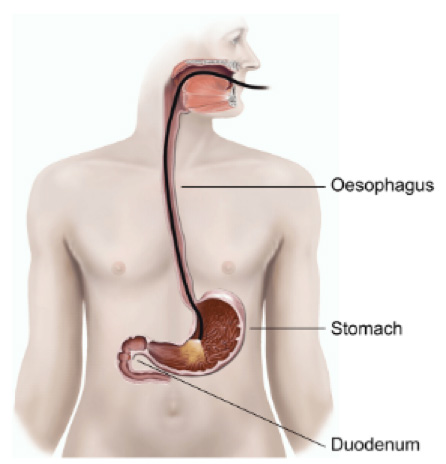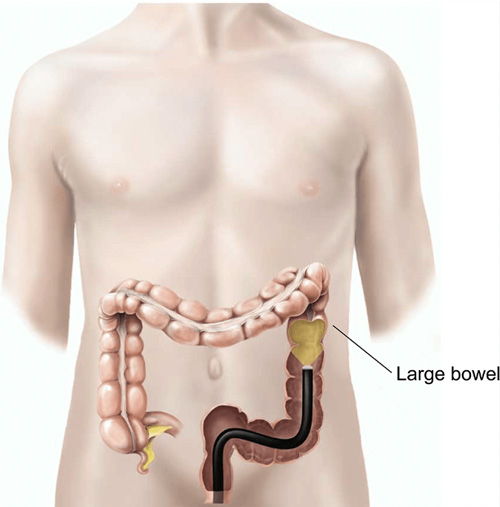Endoscopy and Colonoscopy: Essential Diagnostic Tools for Gastrointestinal Health
In modern medical practice, endoscopy and colonoscopy are crucial procedures for diagnosing and treating various gastrointestinal conditions. These minimally invasive techniques provide a clear view of the digestive tract, allowing healthcare providers to identify abnormalities and administer treatments with precision.
What is Endoscopy?
Endoscopy is a procedure that involves inserting a long, flexible tube with a camera (endoscope) into the body to examine the interior surfaces of an organ or tissue. It’s a versatile tool used to investigate symptoms such as persistent pain, bleeding, or difficulty swallowing.
Types of Endoscopy
- Upper Endoscopy – Gastroscopy: Examines the oesophagus, stomach, and the first part of the small intestine.
- Lower Endoscopy – Colonoscopy: Examines the large intestine (colon) and rectum.
What is Upper Endoscopy – Gastroscopy?
 Gastroscopy is a test procedure done using an endoscope, which is a long, thin, flexible tube with a ‘video camera’ at the tip. This tube is passed through the mouth into the oesophagus (food pipe), stomach and first part of the small intestine. It allows the doctor to inspect these areas and perform other procedures, such as biopsies. Gastroscopy is usually done to investigate symptoms of indigestion, abdominal pain, nausea, vomiting or difficulty swallowing. It is also the best test for finding the cause of bleeding in the upper gut.
Gastroscopy is a test procedure done using an endoscope, which is a long, thin, flexible tube with a ‘video camera’ at the tip. This tube is passed through the mouth into the oesophagus (food pipe), stomach and first part of the small intestine. It allows the doctor to inspect these areas and perform other procedures, such as biopsies. Gastroscopy is usually done to investigate symptoms of indigestion, abdominal pain, nausea, vomiting or difficulty swallowing. It is also the best test for finding the cause of bleeding in the upper gut.
The Gastroscopy procedure
- Consultation: Discuss your medical history and your doctor in advance about any medications you take, as these may need to be ceased or adjusted before your procedure.
- Dietary Restrictions: Follow any dietary restrictions and preparation instructions provided.
- Preparation: Patients must fast 6 hours before the procedure.
- Sedation: Mild sedation is administered to ensure comfort.
- Insertion: The gastroscope is passed through the mouth down the oesophagus and into stomach and first part of the small intestine.
- Examination: The doctor examines the lining of your upper gastrointestinal tract and may take biopsies for further analysis.
- Relaxation: Sedation ensures you are comfortable and relaxed.
- Monitoring: Vital signs are closely monitored throughout.
After the Procedure
- Recovery: Most patients can resume normal activities within a day and you will be sent home with discharge instructions to follow.
- Follow-Up: Discuss results and any necessary follow-up care with your doctor.
Risks and Benefits
Risks
- Complications: Rare but possible complications include perforation, bleeding, and adverse reactions to sedation.
- Discomfort: You may have slight sore throat, bloating because of air trapped in your stomach.
Benefits
- Minimally Invasive: These procedures are less invasive than traditional surgery.
- Quick Recovery: Patients typically recover quickly with minimal discomfort.
- Comprehensive: They provide comprehensive insights into gastrointestinal health
What is Lower Endoscopy – Colonoscopy?
 Colonoscopy is a specific type of endoscopy focused on the large intestine (colon) and rectum. It’s a key procedure for screening colorectal cancer and diagnosing issues such as chronic diarrhoea, unexplained abdominal pain, and rectal bleeding.
Colonoscopy is a specific type of endoscopy focused on the large intestine (colon) and rectum. It’s a key procedure for screening colorectal cancer and diagnosing issues such as chronic diarrhoea, unexplained abdominal pain, and rectal bleeding.
The Colonoscopy Procedure
- Consultation: Discuss your medical history and your doctor in advance about any medications you take, as these may need to be ceased or adjusted before your procedure.
- Dietary Restrictions: Follow any dietary restrictions and preparation instructions provided.
- Bowel Prep: Patients follow a special diet and take laxatives to clear the colon.
- Sedation: Mild sedation is administered to ensure comfort.
- Insertion: A colonoscope is inserted through the rectum to inspect the colon.
- Examination: The doctor examines the colon and may remove polyps or take biopsies for further analysis.
- Relaxation: Sedation ensures you are comfortable and relaxed.
- Monitoring: Vital signs are closely monitored throughout.
After the Procedure
- Recovery: Most patients can resume normal activities within a day and you will be sent home with discharge instructions to follow.
- Follow-Up: Discuss results and any necessary follow-up care with your doctor.
Risks and Benefits
Risks
- Complications: Rare but possible complications include perforation, bleeding, and adverse reactions to sedation.
- Discomfort: Abdominal discomfort, bloating due to trapped air in colon.
Benefits
- Minimally Invasive: These procedures are less invasive than traditional surgery.
- Quick Recovery: Patients typically recover quickly with minimal discomfort.
- Comprehensive: They provide comprehensive insights into gastrointestinal health
Why are These Procedures Important?
Endoscopy and colonoscopy allow direct visualization of the gastrointestinal tract, making them highly accurate in diagnosing conditions like ulcers, tumours, polyps, and Crohn’s disease.
Early Detection
These procedures are vital for early detection of gastrointestinal cancers. For instance, colonoscopy is the gold standard for colorectal cancer screening, capable of identifying precancerous polyps before they develop into full-blown cancer.
Therapeutic Interventions
Beyond diagnosis, endoscopy and colonoscopy enable therapeutic interventions such as removing polyps, treating bleeding lesions, and dilating narrowed areas of the digestive tract.
Who Should Get Screened?
Colonoscopy Screening Guidelines
- Age: Adults aged 45 and older should undergo regular screening.
- Family History: Individuals with a family history of colorectal cancer may need earlier and more frequent screenings.
- Symptoms: Anyone experiencing symptoms like unexplained weight loss, persistent abdominal pain, or changes in bowel habits should consult their healthcare provider about these procedures.
Conclusion
Endoscopy and colonoscopy are indispensable tools in modern gastroenterology, offering unparalleled diagnostic and therapeutic benefits. By understanding these procedures, patients can better prepare for them and appreciate their vital role in maintaining gastrointestinal health. Regular screenings, particularly for colorectal cancer, can save lives through early detection and intervention. If you have concerns about your digestive health, consult your healthcare provider to see if an endoscopy or colonoscopy is right for you.
For more information or to schedule a consultation, contact SIOS today on 02 80804644 or Email: info@sios.com.au
Prioritise your digestive health and take the first step towards peace of mind.


